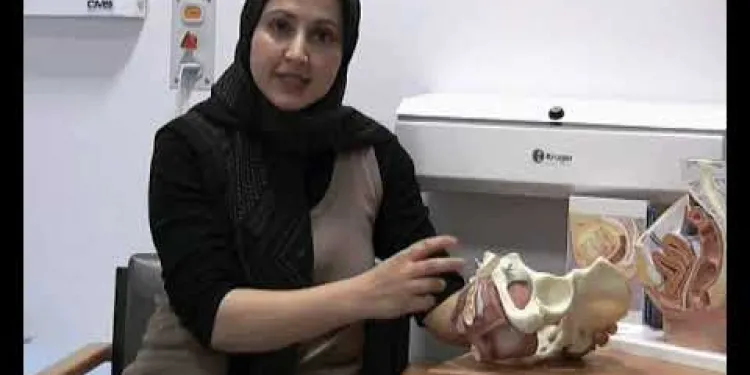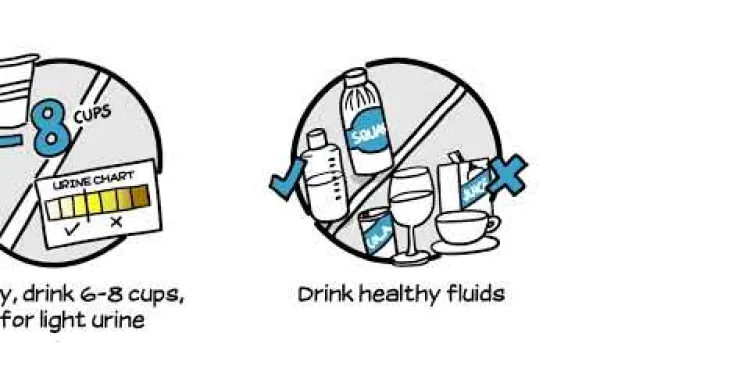Find Help
More Items From Ergsy search
-

Pelvic health: stress urinary incontinence
Relevance: 100%
-

Physiotherapy Assessment of Urinary Incontinence
Relevance: 67%
-

Pelvic health: Urge Incontinence
Relevance: 66%
-

Avoiding infections with urinary incontinence
Relevance: 62%
-

Newcastle Specialist Continence Service's Light Urinary Incontinence Project
Relevance: 58%
-

Incontinence | NHS
Relevance: 55%
-

Your pelvic health matters: insights from NHS clinicians
Relevance: 53%
-

Pelvic health: prolapse
Relevance: 49%
-

Pelvic health: prolapse
Relevance: 48%
-

Incontinence and Prolapse - Physiotherapy Advice
Relevance: 43%
-

Incontinence and Prolapse - Physiotherapy Advice
Relevance: 43%
-

Pelvic Floor Exercises - Using Your Pelvic Floor to Calm Down Your Bladder
Relevance: 41%
-

Pelvic Floor Exercises - Using Your Pelvic Floor to Calm Down Your Bladder
Relevance: 38%
-

How to do pelvic floor exercises | NHS
Relevance: 35%
-

The Pelvic Floor Muscles - Developing an Exercise Programme
Relevance: 32%
-

Understanding Your Sexual Health - Pelvic Inflammatory Disease
Relevance: 28%
-

Does stress impact gut health as we age?
Relevance: 26%
-

Sandwell and West Birmingham Hospitals NHS Trust – Faecal Incontinence and Constipation Healthcare
Relevance: 26%
-

Pelvic Girdle Pain Advice Class
Relevance: 25%
-

BSL Pelvic inflammatory disease (PID)
Relevance: 24%
-

Prolapse Management
Relevance: 23%
-

Prolapse Types and Tips
Relevance: 23%
-

Are there any complications associated with untreated BPH?
Relevance: 21%
-

Mat and gym ball exercises with pregnancy related Pelvic Girdle Pain
Relevance: 20%
-

Coping with Stress and Anxiety
Relevance: 19%
-

Does stress affect tinnitus?
Relevance: 19%
-

What are the side effects of prostate cancer surgery?
Relevance: 19%
-

Can stress trigger shingles?
Relevance: 18%
-

Can stress trigger psoriasis flare-ups?
Relevance: 18%
-

Can stress affect my Type 2 Diabetes?
Relevance: 18%
-

Can stress trigger shingles?
Relevance: 18%
-

Can stress make Crohn's disease worse?
Relevance: 18%
-

Can stress management aid in menopause masking?
Relevance: 18%
-

How can stress management affect cortisol levels?
Relevance: 18%
-

Can stress affect a pregnancy test result?
Relevance: 18%
-

Can stress cause high blood pressure?
Relevance: 18%
-

Does stress contribute to nettle rash?
Relevance: 18%
-

Can stress cause asthma symptoms?
Relevance: 18%
-

How do cortisol levels differ between acute and chronic stress?
Relevance: 17%
-

How does surgery treat prostate cancer?
Relevance: 17%
Pelvic Health: Stress Urinary Incontinence
Understanding Stress Urinary Incontinence
Stress urinary incontinence (SUI) is a common condition affecting many individuals, particularly women, in the United Kingdom. This condition is characterised by the unintentional loss of urine during physical activities that put pressure on the bladder, such as coughing, sneezing, laughing, or exercising. SUI occurs when the muscles and tissues supporting the bladder and urethra weaken, often as a result of childbirth, ageing, or surgery. Understanding the causes and symptoms of SUI is the first step toward managing this condition effectively.Causes and Risk Factors
Several factors contribute to the development of stress urinary incontinence. Pregnancy and childbirth can weaken pelvic floor muscles, leading to SUI. Additionally, hormonal changes during menopause, which reduce estrogen levels, can affect the strength of these muscles. Other risk factors include obesity, which increases abdominal pressure, and certain types of pelvic surgery. Family history and certain medical conditions, such as chronic coughing or constipation, can also increase the likelihood of developing SUI. Recognising these risk factors can help individuals take precautionary measures to protect their pelvic health.Management and Treatment Options
There are various approaches to managing and treating stress urinary incontinence. Pelvic floor exercises, also known as Kegel exercises, are highly recommended as they strengthen the muscles that support the bladder and urethra. Lifestyle changes, such as losing weight and managing fluid intake, can also alleviate symptoms. For some individuals, medical treatments may be necessary. These can include medications to strengthen the urethral sphincter or surgical procedures such as sling surgery, which provides additional support to the urethra. Consulting with a healthcare professional is essential to determine the most appropriate treatment plan based on individual needs and circumstances.Preventative Measures and Support
Preventing stress urinary incontinence involves maintaining a healthy lifestyle and being proactive about pelvic health. Regular pelvic floor exercises can help keep muscles strong, while a balanced diet and regular exercise can prevent obesity. It's also beneficial to avoid activities that place excessive pressure on the bladder. Support networks and educational resources available in the UK, including physiotherapists and support groups, can provide valuable information and assistance. Understanding that SUI is a common and manageable condition can empower individuals to seek help and make informed decisions about their pelvic health.Pelvic Health: Stress Urinary Incontinence
What is Stress Urinary Incontinence?
Stress urinary incontinence (SUI) is when you accidentally pee a little during activities like coughing, sneezing, laughing, or exercising. It happens because the muscles that hold your bladder aren't strong enough. This is common, especially for women in the UK. Understanding why this happens can help you manage it better.Why Does It Happen?
There are many reasons why stress urinary incontinence happens. Having a baby can weaken the muscles around the bladder. Also, when women go through menopause, their bodies change and muscles can become weaker. Being overweight can also put more pressure on the bladder. Surgery in the pelvic area or having family members with the same issue can increase the chances of SUI. Knowing these can help you take care of your body.How Can We Manage and Treat It?
There are different ways to help with stress urinary incontinence. One simple way is doing pelvic floor exercises, called Kegel exercises. These exercises make the muscles stronger. Losing weight and drinking the right amount of fluids can also help. For some people, medicine or surgery might be needed. It's important to talk to a doctor to find out what is best for you.How Can We Prevent It and Get Support?
To prevent stress urinary incontinence, it's good to live a healthy lifestyle. Regular exercises and eating a balanced diet can help you stay healthy and keep your muscles strong. Try to avoid things that put extra pressure on your bladder. There are support groups and physiotherapists in the UK who can help. Remember, SUI is common and there are ways to manage it. You are not alone, and you can find help to make things better.Frequently Asked Questions
What is stress urinary incontinence (SUI)?
Stress urinary incontinence is a condition where small amounts of urine leak out unintentionally when pressure is placed on the bladder, such as during coughing, sneezing, laughing, or physical activities.
What are the common causes of stress urinary incontinence?
Common causes include weakened pelvic floor muscles due to childbirth, ageing, menopause, and certain surgeries. Obesity and chronic coughing can also contribute to the condition.
How is stress urinary incontinence diagnosed?
A healthcare provider diagnoses SUI through a physical examination, medical history review, and possibly some tests such as a urinary stress test, urinalysis, or bladder diary.
Can stress urinary incontinence be cured?
While there is no guaranteed cure, several treatments can significantly manage or reduce symptoms, including pelvic floor exercises, lifestyle changes, medications, and surgery.
What are pelvic floor exercises?
Pelvic floor exercises, also known as Kegel exercises, involve tightening and relaxing the muscles that support the bladder and urethra. Regular practice can strengthen these muscles and help control urine leakage.
Are there any lifestyle changes that can help with stress urinary incontinence?
Yes, maintaining a healthy weight, avoiding heavy lifting, quitting smoking, reducing caffeine and alcohol intake, and managing chronic coughing can all help manage SUI symptoms.
What non-surgical treatments are available for stress urinary incontinence?
Non-surgical treatments include pelvic floor exercises, bladder training, biofeedback, electrical stimulation, and medications prescribed by a healthcare provider.
What types of surgery are available for stress urinary incontinence?
Surgical options may include urethral bulking agents, sling procedures, and colposuspension. Your healthcare provider will discuss the most suitable options based on your condition.
Is stress urinary incontinence common in women only?
While SUI is more common in women due to factors like childbirth and menopause, it can also affect men, particularly after prostate surgery.
Can stress urinary incontinence affect younger women?
Yes, although more common in older women, younger women can also experience SUI due to factors such as childbirth or certain high-impact physical activities.
Can men experience stress urinary incontinence?
Yes, men can experience SUI, often due to surgeries involving the prostate gland or as a result of pelvic floor muscle weakness.
Are there any products that can help manage stress urinary incontinence?
Yes, products such as absorbent pads, protective underwear, and incontinence clamps can help manage urine leakage and maintain normal daily activities.
Should I see a doctor if I suspect I have stress urinary incontinence?
Yes, it’s important to consult a healthcare provider for a proper assessment and to discuss suitable treatment options to manage or reduce symptoms effectively.
Does pregnancy increase the risk of stress urinary incontinence?
Yes, pregnancy can increase the risk due to hormonal changes, increased pressure on the bladder, and the potential for pelvic floor muscle weakening.
What are the psychological impacts of stress urinary incontinence?
Stress urinary incontinence can lead to feelings of embarrassment, anxiety, and reduced quality of life. It is important to seek support and effective treatment to manage these impacts.
What is Stress Urinary Incontinence (SUI)?
Stress Urinary Incontinence, or SUI, is when pee leaks out when you laugh, cough, sneeze, or lift something heavy. It happens because the muscles that control pee are weak.
If you have SUI, it's okay to talk to a doctor. They can help you feel better. Doing special exercises for your pelvic floor muscles can also help. These are called Kegel exercises.
Remember, you're not alone, and there are ways to help manage it.
Stress urinary incontinence means pee might come out by accident. This can happen when you cough, sneeze, laugh, or do things like jumping.
Why do people sometimes pee when they laugh or exercise?
Some people pee a little bit when they laugh, cough, or exercise. Here are some reasons why:
- The muscles that help you hold pee are weak.
- Having a baby can change these muscles.
- Growing older can also make these muscles weaker.
- Being overweight can put extra pressure on your bladder.
If this happens to you, here are some things that might help:
- Do special exercises called pelvic floor exercises to make the muscles stronger.
- Talk to a doctor or nurse about it. They can give advice.
- Try not to drink too much caffeine, like in coffee and soda.
- Wear special pads if you need to feel more comfortable.
There are different reasons why this can happen. It can happen because muscles inside the body get weak. This can happen after having a baby, as people get older, or after some surgeries. Changes in a person’s body, like going through menopause, can also make it happen. Being very overweight or coughing a lot can also cause this problem.
If reading is hard, try using audiobooks to listen instead. Highlighting words as you read can also help. Don't be afraid to ask someone to read it to you.
How do doctors find out if someone has stress urinary incontinence?
A doctor finds out if someone has SUI by doing a check-up. They will ask questions about your health and might do some tests. These tests can include seeing if pee leaks when you cough, looking at your pee under a microscope, or keeping a diary of when you pee.
Can stress urinary incontinence be made better?
There might not be a way to completely fix the problem, but there are things that can really help. You can try exercises to make the muscles in your pelvis stronger, change some things in your daily life, take medicine, or have an operation. These can help make the symptoms smaller or easier to handle.
You might find it helpful to use reminders or simple apps to help you remember to do exercises. It can also be good to have a family member or friend support you in making lifestyle changes.
What are pelvic floor exercises?
Pelvic floor exercises are simple exercises. They help make the muscles at the bottom of your tummy strong. These muscles help you hold your pee, poo, and gas in. They also help when you have a baby.
To do these exercises:
- Squeeze the muscles you use to stop peeing.
- Hold for a few seconds.
- Relax and let go.
- Do this a few times every day.
You can try apps or videos to help you learn. Ask a grown-up to help you find them.
Pelvic floor exercises are also called Kegel exercises. These exercises mean squeezing and relaxing the muscles that help your bladder. Doing these exercises often can make the muscles stronger and help stop accidents with pee.
Can changes in daily habits help with bladder leaks when stressed?
Bladder leaks can happen when you cough, laugh, or lift something heavy. This is called stress urinary incontinence. Here are some simple things you can try to help:
- Do special exercises called Kegels. These help make the muscles around your bladder stronger.
- Try to drink less coffee and soda. These drinks can make you need to go to the bathroom more.
- Keep a healthy weight. Extra weight can put more pressure on your bladder.
- Go to the bathroom regularly. Don’t wait too long before you go.
If you find it hard to remember these tips, you can use a calendar or phone reminders to help. Ask a family member or friend for support if you need it.
Yes, there are things you can do to help. Keep a healthy weight. Don't lift heavy things. Stop smoking. Drink less coffee and alcohol. Try to stop coughing a lot.
Here are some tips to support you:
- Use a weight tracker to help keep a healthy weight.
- Try a lifting technique, like bending your knees, to lift safely.
- Find a smoking support group to help you quit.
- Use an app to track your caffeine and alcohol intake.
- See a doctor about your cough.
What are the non-surgery treatments for stress urinary incontinence?
If you have stress urinary incontinence, it means you may leak pee when you laugh, cough, or run. Here are some simple treatments that do not involve surgery:
- Exercises: Try pelvic floor exercises, also called Kegel exercises. These help make your muscles stronger around the bladder.
- Bladder Training: Plan your toilet trips. Try to go at regular times, and slowly increase the time between peeing.
- Devices: Sometimes, a doctor might suggest a special device you can wear to help stop leaks.
- Healthy Lifestyle: Drinking less caffeine or losing weight can help with leaks.
- Meds: There are some medicines that might help. A doctor can talk to you about these.
If you want help with the exercises, you can use an app or ask a physiotherapist. They can show you how to do them right.
Some ways to help without surgery are:
- Exercises to make your pelvic muscles strong.
- Practicing when to go to the bathroom.
- Using special machines to help your muscles work better.
- Using little electric signals to help your muscles.
- Taking medicine your doctor gives you.
What kinds of surgery can help with stress urinary incontinence?
Stress urinary incontinence means you might leak pee when you laugh, cough, or exercise.
There are different surgeries that can help stop this problem:
- Bladder Sling: A doctor puts a small piece of tape inside to help hold up your bladder.
- Colposuspension: This surgery lifts the bladder to help stop leaks.
- Injectable Bulking Agents: Doctors can put a special liquid to help close the bladder opening.
If you have questions, a doctor can talk to you about which surgery is best.
There are tools and ways to help you:
- Ask your doctor to explain things in simple words.
- Use pictures or videos to understand better.
- Bring a family member or friend to help listen and ask questions.
There are different types of surgery that can help. These include:
- Putting a special thick liquid into the tube where your pee comes out. It helps stop leaks.
- Using a small piece of material to lift and support the bladder so it doesn’t leak.
- Doing a surgery to lift up the bladder and tie it in place.
The doctor will talk with you about which option is best for you.
It can help to bring a friend or family member to the doctor to take notes. You can also ask for easy-to-read information from the doctor.
Do only women have stress urinary incontinence?
SUI happens more to women because of things like having babies and menopause. But men can get SUI too, especially if they've had prostate surgery.
Can young women have trouble with bladder leaks?
Yes, young women can have bladder leaks when they laugh, sneeze, or exercise. This is called stress urinary incontinence. It happens when the muscles that control your bladder are weak.
If you have this problem, it is a good idea to talk to a doctor. They can give advice and help you feel better.
Some things that might help are:
- Doing pelvic floor exercises (like Kegels) to make your muscles stronger.
- Wearing special pads to keep your clothes dry.
Remember, you are not alone, and there are ways to help with bladder leaks.
Yes, younger women can have SUI too. This can happen because of having a baby or doing tough exercises. It is more common in older women, but younger women can get it as well.
Can men have trouble holding their pee when stressed?
Yes, men can have SUI. This can happen after surgeries near the prostate gland or if the muscles in the pelvic area are weak.
Can any products help with stress urinary incontinence?
Stress urinary incontinence is when you pee a little by accident when you laugh, sneeze, or exercise. Here are some products that can help:
- Pads or Liners: Special pads or liners you can wear in your underwear. They catch any leaks.
- Pelvic Floor Exercises: You can do exercises to make your muscles stronger. Ask a doctor or physiotherapist to help.
- Wear Comfortable Clothes: Wear loose clothes and underwear. It helps you feel comfortable.
If you are worried, talk to a doctor for advice. They can help find the best way for you to feel better.
Yes, there are things like special pads, protective underwear, and clamps that can help if you have trouble controlling your pee. These can help you carry on with your daily activities.
Should I talk to a doctor if I think I have stress urinary incontinence?
Do you sometimes pee when you laugh, cough, or sneeze? This might be stress urinary incontinence.
If you think you have this problem, it's a good idea to talk to a doctor. They can help you feel better.
You can use things like a notebook or a voice recorder to keep track of when it happens. This can help the doctor understand your problem better.
Yes, it's important to talk to a doctor or nurse. They can check what's wrong and help you find the best way to feel better.
Does being pregnant make it harder to control when you pee?
Yes, being pregnant can make the risk higher. This is because of changes in hormones, more pressure on the bladder, and weaker muscles in the pelvic area.
Using the following strategies might help:
- Kegel exercises - These help make pelvic muscles stronger.
- Stay hydrated - Drink enough water, but not too much at once.
- Use reminders - Set reminders to go to the bathroom regularly.
How does stress urinary incontinence make people feel?
Stress urinary incontinence means you leak pee when you cough, laugh, or exercise. It can make people feel sad, worried, or embarrassed. Here are some feelings and ways to help:
- Feeling Embarrassed: You might feel shy about leaking pee. Remember, many people have this problem. Talking to a doctor can help.
- Feeling Worried: You might worry about going out or being with friends. Try wearing pads or using protective underwear to feel safer.
- Feeling Sad: It's okay to feel upset. Talk to someone you trust, like a friend or family member, or see a counselor for support.
- Ways to Cope: Do exercises called Kegels. These help make your muscles stronger. You can also try breathing exercises to stay calm.
Remember, it's okay to ask for help. You're not alone!
Stress urinary incontinence can make people feel embarrassed and worried. It can also make life less fun. It is important to get help and find good treatment to feel better.
Useful Links
This website offers general information and is not a substitute for professional advice.
Always seek guidance from qualified professionals.
If you have any medical concerns or need urgent help, contact a healthcare professional or emergency services immediately.
Some of this content was generated with AI assistance. We’ve done our best to keep it accurate, helpful, and human-friendly.
- Ergsy carfully checks the information in the videos we provide here.
- Videos shown by Youtube after a video has completed, have NOT been reviewed by ERGSY.
- To view, click the arrow in centre of video.
- Most of the videos you find here will have subtitles and/or closed captions available.
- You may need to turn these on, and choose your preferred language.
- Go to the video you'd like to watch.
- If closed captions (CC) are available, settings will be visible on the bottom right of the video player.
- To turn on Captions, click settings .
- To turn off Captions, click settings again.
More Items From Ergsy search
-

Pelvic health: stress urinary incontinence
Relevance: 100%
-

Physiotherapy Assessment of Urinary Incontinence
Relevance: 67%
-

Pelvic health: Urge Incontinence
Relevance: 66%
-

Avoiding infections with urinary incontinence
Relevance: 62%
-

Newcastle Specialist Continence Service's Light Urinary Incontinence Project
Relevance: 58%
-

Incontinence | NHS
Relevance: 55%
-

Your pelvic health matters: insights from NHS clinicians
Relevance: 53%
-

Pelvic health: prolapse
Relevance: 49%
-

Pelvic health: prolapse
Relevance: 48%
-

Incontinence and Prolapse - Physiotherapy Advice
Relevance: 43%
-

Incontinence and Prolapse - Physiotherapy Advice
Relevance: 43%
-

Pelvic Floor Exercises - Using Your Pelvic Floor to Calm Down Your Bladder
Relevance: 41%
-

Pelvic Floor Exercises - Using Your Pelvic Floor to Calm Down Your Bladder
Relevance: 38%
-

How to do pelvic floor exercises | NHS
Relevance: 35%
-

The Pelvic Floor Muscles - Developing an Exercise Programme
Relevance: 32%
-

Understanding Your Sexual Health - Pelvic Inflammatory Disease
Relevance: 28%
-

Does stress impact gut health as we age?
Relevance: 26%
-

Sandwell and West Birmingham Hospitals NHS Trust – Faecal Incontinence and Constipation Healthcare
Relevance: 26%
-

Pelvic Girdle Pain Advice Class
Relevance: 25%
-

BSL Pelvic inflammatory disease (PID)
Relevance: 24%
-

Prolapse Management
Relevance: 23%
-

Prolapse Types and Tips
Relevance: 23%
-

Are there any complications associated with untreated BPH?
Relevance: 21%
-

Mat and gym ball exercises with pregnancy related Pelvic Girdle Pain
Relevance: 20%
-

Coping with Stress and Anxiety
Relevance: 19%
-

Does stress affect tinnitus?
Relevance: 19%
-

What are the side effects of prostate cancer surgery?
Relevance: 19%
-

Can stress trigger shingles?
Relevance: 18%
-

Can stress trigger psoriasis flare-ups?
Relevance: 18%
-

Can stress affect my Type 2 Diabetes?
Relevance: 18%
-

Can stress trigger shingles?
Relevance: 18%
-

Can stress make Crohn's disease worse?
Relevance: 18%
-

Can stress management aid in menopause masking?
Relevance: 18%
-

How can stress management affect cortisol levels?
Relevance: 18%
-

Can stress affect a pregnancy test result?
Relevance: 18%
-

Can stress cause high blood pressure?
Relevance: 18%
-

Does stress contribute to nettle rash?
Relevance: 18%
-

Can stress cause asthma symptoms?
Relevance: 18%
-

How do cortisol levels differ between acute and chronic stress?
Relevance: 17%
-

How does surgery treat prostate cancer?
Relevance: 17%


